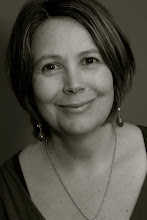At the intersection of race, racism, oppression and belonging.
This is what I tell my clients, that two of our greatest needs as humans are autonomy and belonging. We need to know that we have agency, and also, that we belong. When we know we belong, and are supported in our autonomy we can feel confident to explore and express who we are. In understanding the context that much of our culture was (and still is) built on oppression, where does this leave the oppressed in fulfilling the need to belong? How can both people of color and women belong in a culture that oppresses them?
I started dating my ex-husband, who is black, in the late seventies. I was all of maybe 18, when one day my older brother came into my bedroom to talk to me. My brothers never really talked to me; they teased me, but we didn't talk. He brought up the fact that I was dating a black guy, and he was nervous talking about it, he was trying to be protective, and this is what he told me, “If you keep dating him, no white guys will ever date you.” Another brother tried to be humorous about it, "It's ok with me, I hate everybody anyway."
I was hurt and angry and confused and not even sure who to talk to about this. If I talked to my girlfriends, they might agree with my brother; if I talked to my boyfriend, I might hurt his feelings. I already knew that to talk to my parents just would make me feel more confused, they were always in their own worlds. I was certain that we were in a modern era, certain that nobody could really still be a crazy bigot. The world loved Jimi Hendrix, didn't they? It was a crazy person who shot MLK, right? I had no idea of patriarchy, or hierarchy, or historical racism, and how could I? They certainly weren't teaching it in school, even if they were teaching noblesse oblige and strained tolerance.
And so now, we have Rachel Dolezal, and nobody quite seems to know what to make of her, but you know, I kinda get it. She was raised in this space of having adopted siblings into what might quite be a horrible mess of a family. She was raised by white parents who probably knew as little as any other white people what historical racism and micro-aggressions are about. Because so few people understand the significance of attachment theory in adoption, most adoptive parents have no idea of the the obstacles to creating a sense of belonging in children who have been taken from their birth parents.
So, where does Rachel belong? She’s created a life and a persona that felt as close as right to her as she could get; she’s found that she is stuck in a corner of oppression and non-understanding that comes from being a white woman in America. I think it is notable that in our history, black men got the right to vote before white women. I think it seems unseemly and unthinkable for many white women to admit that they feel oppressed; because, after all, they are white. But oppression is oppression and it doesn’t feel like belonging. I sometimes think that what my ex and I had in common was the unspoken feeling of being oppressed.
Where do stories of mixed race belong? How do we tell them, and is it safe to tell them? I ask myself this still. White people tell the stories because they have the privilege, their voices demand attention. I've made my life and my peace with crossing color lines; I am a white woman with children who are both black and white. People have ‘accused’ me of having adopted my children, people have asked me what my kids ‘are,’ people have come up to us and started speaking Spanish. People can wonder who and what we are, but I hope that because I have tried to foster both autonomy and belonging in my family, we are people who love and support each other first, and our bloodlines and DNA come second. There is racism and oppression in our American culture, but we can choose to live in places where the dominant culture is not our culture--and how we present to the outside world really doesn't matter. When the culture we live in, is woven of oppression and lies, how do we tell our truth?
Subscribe to:
Post Comments (Atom)


No comments:
Post a Comment